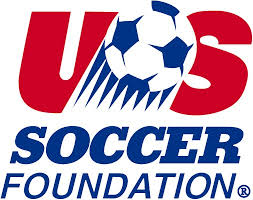Urban Soccer Symposium: Dr. Ruby Payne urges closer ties between coaches, parents
WASHINGTON — Author and educator Dr. Ruby Payne impressed the attendees at the Urban Soccer Symposium in Washington, D.C., last week with remarks on the relationships between soccer coaches and parents, emphasizing that both should retain a strong bond, especially when parents and players come from a low-income background.
 Dr. Payne was the keynote speaker at the end of a busy day in downtown Washington for over 150 people involved in grassroots soccer across the country, and related her work on the culture of poverty and its causes to the role soccer can play in helping those who come from impoverished backgrounds.
Dr. Payne was the keynote speaker at the end of a busy day in downtown Washington for over 150 people involved in grassroots soccer across the country, and related her work on the culture of poverty and its causes to the role soccer can play in helping those who come from impoverished backgrounds.
“In under-resourced households, parents are scared of their children becoming too educated,” Payne said. “Why? Because they’ll leave. That’s why you need to work with the parents. This impacts your relationships with individual players, and whether they’re going to work with you or not.
“We recommend that you do an outreach with your parents, but a different kind of outreach. A lot of times, we teach parents how to think about their children. But here’s the problem – a lot of the time being under-resourced isolates you from many things.
“It isolates you from information, it isolates you from opportunity. Many of the children you work with have never been out of their neighborhoods or very far out. The bottom line, you’re isolated in many ways.”
Dr. Payne is the founder of aha! Process Inc., a company that works in schools and other organizations to inform people about poverty, and throughout her address she shared her views on the differences that separate those from low-income, middle class and wealthy backgrounds.
[ +READ: Urban Soccer Symposium concludes with emphasis on life lessons from sport ]
In particular, she touched on the relationships between coaches and players, and how those in general can be affected by a player’s home life and the amount of stability they have in that.
“Your players [from low-income backgrounds] decide whether they’re going to work for you based on whether they like you or not,” she said. “One of the most valuable gifts soccer gives to students is this whole concept.
“In stable households, they respect the position. If you’re the coach, you do what the coach says. You may not like the coach, but that’s the coach. In under-resourced households, you work for somebody because you like them. If you don’t like them, you’re not going to work for them, and they make that decision based on your non-verbal messages. They’ll do anything for you if you care about them.”
 The role of education also came into Payne’s speech, especially the role a soccer education can play in giving those from under-privileged backgrounds a far greater knowledge that they would otherwise not have.
The role of education also came into Payne’s speech, especially the role a soccer education can play in giving those from under-privileged backgrounds a far greater knowledge that they would otherwise not have.
“You have some of your players who are afraid to excel, because they think they’ll lose friends,” she said. “It’s part of that reality, the polarization of thought. Knowledge is a huge form of privilege, and one of the things that you’re giving your players is a knowledge base that they might not have.
“How you spend your time defines your knowledge base. How you spend your time defines your knowledge. And this for many of your players, this is the reality they live in. Whatever you spend your time on determines your knowledge base.”
Despite what may appear to be a somewhat gloomy outlook, Payne concluded by stating that soccer coaches can play a tremendous role in the lives of their players, especially when it comes to establishing their dreams and aspirations for the future even in the face of difficulties.
“When we give parents training, we develop capacity in the parents,” she added. “One of the things your students don’t have is a future story for themselves. A lot of times the future stories are unrealistic. We start planning backward with them, and ask what they need to do to get there. You, in the relationships you have with your players, make a huge difference. But you also serve as a role model to the parents.
“For your players to be successful, you all have to learn how to intervene with the adults, so they have an advocate among the adults in the neighborhood when you’re not there. Then we teach resourced people about the reality of being under-resourced.
“I love soccer for many reasons. What it teaches kids, how it teaches them to be cooperative, how it teaches them rules, how to play, a different game, a different kind of strategic thinking that you bring to the game environment is a wonderful tool. That is the best gift you give to your players – the relationship with you.”











